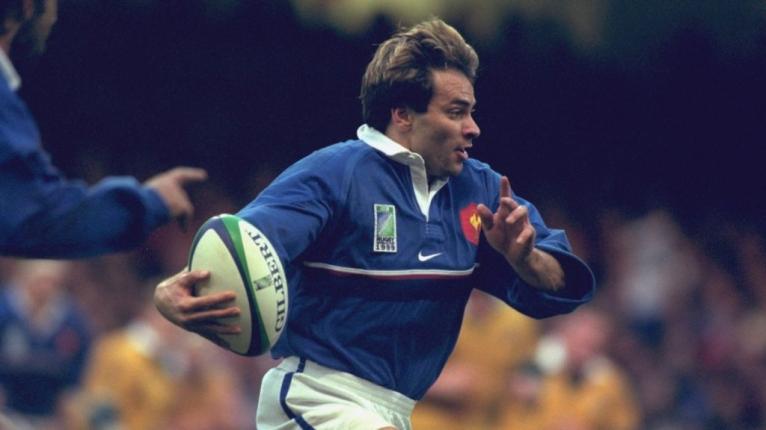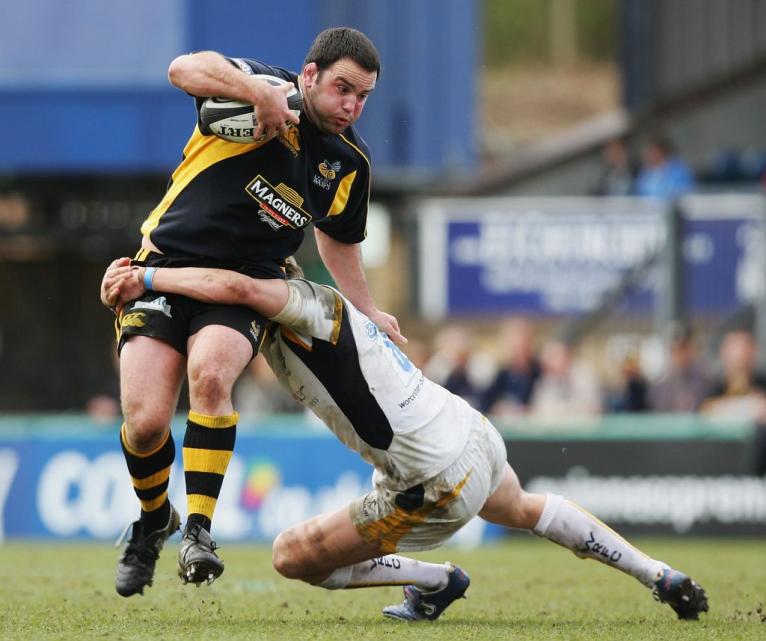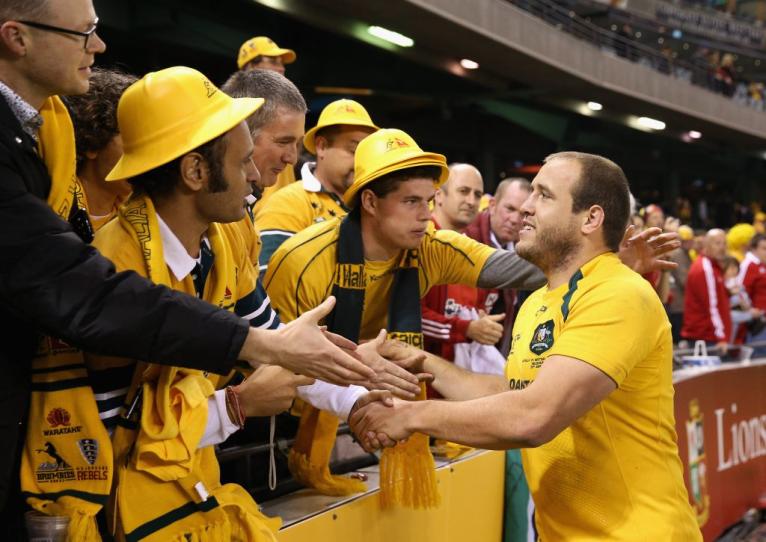A black and white photo shows up in your social media feed. The words ‘condolences’, ‘we regret to inform’, and ‘wishing our best to his family, friends, and teammates’ are released in a public statement. An unnamed player has died in dire circumstances. A taboo word – suicide – is avoided. The online community feels the loss, expressing their digital love and raising a thought about how such tragedy can be prevented in future. Unfortunately, after a couple of weeks, the vast majority move on.
Depression has been around for millennia, but until relatively recently, was seldom part of public discourse, much less talked about in sports locker rooms. It had been brushed aside as an ailment afflicting only the weak, which can be quickly overcome with a stiff upper lip.
Athletes are not impervious to its barbs. Rugby players may be able to lift a 130kg body up in the air or run 100m in under 11 seconds, but their immense physical traits do not render them immune to mental health issues. The fear of losing your contract, of playing poorly or letting down teammates and upsetting fans, of the uncertainty of life after rugby are just a handful of fuses which may be lit, causing a deeper malaise to set in.

“I remember a scrum coach calling me a disappointment and a let-down,” says ‘Clive’, who plays in French rugby’s ProD2 league and wishes to remain anonymous. “I started spiralling, feeling all this negativity surrounding me and pushing me to drown.
“I was alone most of the day, as my wife was out working, and in those moments, I just opened my mind to the worst possible thoughts. I didn’t want to tell my friends, family, and teammates, because of what their answer could be.
“At some point, I started to think, ‘Is all of this worth it? Is it worth living?’ I don’t want to talk about suicide, but it is something that crosses your mind. I remember crying in my car, hiding my problems, not telling the ones I loved the most what I was going through because I didn’t want to unload on them.”
Former Australia prop Ben Alexander has spoken candidly about his depression in the past, which began following the Wallabies’ loss to the touring British and Irish Lions in 2013.
When a player has a bad game, sometimes he finds a message on his Instagram with more than a couple of fans badmouthing and saying crazy things.
“I was in a bad way for a while, and the suicide of a teammate (Dan Vickerman) made me face up to my own mental health challenges and get on top of them before I retired. People around me may have known I was struggling, but I didn’t tell anyone and would spend my training-free days on YouTube learning about depression, neurochemicals, and how the brain works so I felt ready to retire.
“When the time came, I felt ready but still had a rough period as my grandmother, who I was very close with, died a few weeks after. Fortunately, a friend introduced me to Parkrun, which helped me stay active with mates and maintain a good routine.”
While Alexander found a way to address his problems, Clive continued to toil.
“The same ideas continued to pop out: I have no life outside of rugby; what I am going to do when I retire; I hate playing, I’m not good enough; I hate everything. The pressure that comes with becoming a pro player is daunting, and I think fans don’t realise it.
“When a player has a bad game, sometimes he finds a message on his Instagram with more than a couple of fans badmouthing and saying crazy things. We need people, be it coaches, fans, or administration officers, to understand our struggles, to listen to us.”

The turning point was a meeting with much-travelled former player Patrick Barnard. The South Africa-born prop plied his trade in the Premiership, Top 14 and ProD2, winning the English title with Wasps. His experiences inspired him to undertake a degree in psychology to help players prepare for retirement and cope with mental ill health.
“The pressure is immense in the pro game, week in and week out,” Barnard says. “We need to realise there are a lot of players who sacrifice their bodies and minds who need support, and I had more than a few friends who suffered from depression.
“There has been a generational shift in terms of exposure. Players are more exposed, with social media playing a massive role, and I do think some coaches still don’t understand the impact of it on the life of a player. Things changed massively from when I started playing, and the game has to adapt to it. Players are human beings. They aren’t superhumans. They are human beings with extraordinary talent.
“We have to invest more in our soft skills, in the ability to read and talk to different kinds of players. I would say clubs and coaching staff should adopt personality tests, as it will definitely help them get the best out of a player.”
Even with all the progress being made, sometimes the catastrophic still occurs. Barnard had been asked to schedule a meeting with Rouen fly-half Jordan Michallet. The player did not appear.
A few hours later, I found out he had taken his own life that day. It still haunts me.
“I waited and didn’t understand what was going on,” Barnard remembers. “A few hours later, I found out he had taken his own life that day. It still haunts me. For years we have been trying to warn clubs and the players association in France to tackle this issue, but few cared about it.”
Clive says the awful death of Michallet brought about some change in French rugby, but that certain coaches still need to improve their attitude to mental health.
“There’s a percentage of coaches, mainly the older generation, who don’t care about our mental health. I’ve seen players in the same situation I was in, and the head coach simply refused to accept the mental struggles and said ‘I don’t care about your personal issues and thoughts, I just want you to destroy the opposition’.
“I remember talking to a teammate and just saying, ‘Leave this club. It is not working for you. You tried; you did your best. But you can’t let it kill you; Thankfully, at the time, we were coached by someone who listened to us and when we didn’t want to stay anymore, he wouldn’t stop us from leaving. An exception from my experience as a pro player.
“In France, things changed a bit after Jordan Michallet’s suicide. I don’t know if they really care or not, but his death had some impact on the pro game.”

Barnard argues there should be dedicated specialists working with each team.
“I can’t understand why there isn’t a mental health professional working side-by-side with the pro clubs. There should be. I work in France and there’s almost no psychologist or mental health professional involved to help players go through these things.
“I look back to coaches like Jake White, Leon Holden, Shaun Edwards, and Ian McGeechan with the capability of understanding when something wasn’t right with a player. That human trait was one of their strengths. I always remember when my wife found out she had breast cancer, the Wasps staff understood I wasn’t okay, and they helped me and my family going through that time. They wanted the best for me, not only as a player but as a human.”
António Ferreira, the Portuguese Rugby Union’s chief medical officer and chairman of Rugby Europe’s player welfare sub-committee has dedicated his life to protecting players.
“Players are citizens and human beings, which means they are exposed to the same problems as anyone else. The idea rugby players are ‘unbreakable’ can cause a stigma to those who are afflicted by those illnesses, and we have to tackle it.
“We are fighting the stigma on different fronts. For example, in Portugal, the IPDJ (the Sports and Youth Portuguese Institute) has financed campaigns of awareness, while at a more global scale, World Rugby has pushed for an improvement in that area. All team doctors have to complete an online course called ‘the mindset’, to help us understand how to identify, analyse, and treat players who are showing symptoms associated with depression. It teaches us to be proactive. Most players don’t search for us, and we have to always be on the lookout.
“Why have things progressed for the better? Firstly, our society is more open to talk about it. Secondly, players have lowered their defences, especially the men, who in the past tried to block any type of help, and they are now more willing to seek it. Thirdly, the institutions that herald rugby have made real efforts to raise awareness, find solutions, and work to provide structured support for those in need. Things have changed, and we now can address mental health in the best possible way.”
One of the stories that motivates me to keep going was Beth’s account. She reached us, saying she was close to taking her life but came across a LooseHeadz Instagram post that said to not give up.
The Looseheadz charity has made it their mission to tackle depression and create a well-being toolkit. The organisation was co-founded seven years ago by Rob Shotton, who saw friends and teammates struggle without knowing how to help.
“A pat on the back and saying ‘everything will be fine’ wasn’t enough, and we wanted to do more. In England, suicide is the most common cause of death in people under 35. The more we dug around rugby, the more we realised little was being done.
“When it is an invisible matter like mental health people tend to not look at it seriously from an investing point of view. People can’t see it, but it is as important as strength and conditioning. We need more people working on it, as it is fundamental for people to talk about what they feel, their problems, and their thoughts. We need to make an effort to create a more sustainable environment.
“We are working now with 1500 clubs all over the world, providing education and ways to save lives. One of the stories that motivates me to keep going was Beth’s account. She reached us, saying she was close to taking her life but came across a LooseHeadz Instagram post that said to not give up. We met her three months ago at Wrexham Rugby Club, and she told us we saved her life, and that’s the reason why we are here. These are the stories we hope that can turn our mission into a movement.”
Barnard adds: “In the talks with have with players, there are three subjects that always come on top: injury, not getting picked to play, and life after rugby. The last piece of that puzzle is not only big for the pro players but also for those involved at a grassroots level. Losing that escape and routine, not being close to their teammates, as it is a loss of identity. Most studies specify that 66% of players deal with mental health problems after retirement. For us, it goes back to education. In the Women’s game, you will find players with more than two jobs and are trying to become professional players. There’s a lot that we are not aware of, and that we need to learn.”
Alexander found another way to help him tackle his mental health issues and, simultaneously, share his experiences.
“I love writing as it helps me get thoughts out of my head. When I saw a psychologist at the end of the pandemic, I was in a really bad way and learned I’d developed the habit of rumination, where my thoughts would go in circles and not go anywhere productive. This drained my energy and made me miserable.
“Writing and sharing help get those thoughts out of my head, think through what I’m writing about, and I often realise the thoughts I’m having are ridiculous and they go away. Plus, sharing what I write has made me realise I’m not alone and I get emails from people thanking me, which spurs me on to keep writing.”
The 39-year-old, who won 72 Australia caps, believes rugby is learning lessons.
“The game is starting to realise consistent high performance is the result of good physical and mental health, and mental challenges are often what hold players and teams back. However, these changes take time, and creating an environment where people can communicate how they’re feeling isn’t easy, especially if a few people don’t fully appreciate what others are going through.”
What’s next is up to us all: from the rugby fan with social media at our fingertips to those at the summit of the game who are allocating more funds to player welfare programmes. We cannot forget those who have perished. And we must continue to broadcast the message people who struggle are not alone, and there’s a rugby community ready and willing to help them.


Excellent article. A real problem for some players but difficult to identify, in certain cases, by the staff. Congrats Francisco.